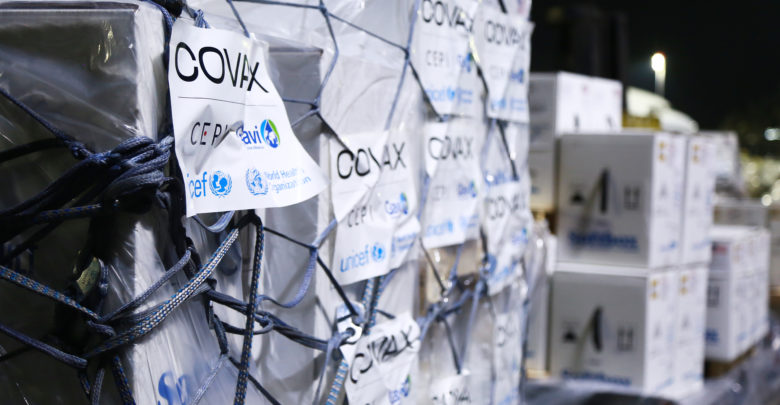Thousands raised for UNICEF’s COVAX fundraiser by competition between U of A and U of M
Most of the funds have been collected through donations so far, but there are plans to implement other methods such as raffles to collect more funds.
 UNICEF/UN0579044/Kanobana
UNICEF/UN0579044/KanobanaAn ongoing fundraising competition between the pediatrics departments at the University of Alberta and the University of Manitoba has raised thousands of dollars for the United Nations Children’s Fund’s (UNICEF) COVAX initiative.
For decades, UNICEF has been a non-profit agency aiming to save children’s lives around the world. They are one of the key delivery partners for COVAX, a group whose aim is to ensure global access to COVID-19 vaccines. So far, the U of A has raised almost $6,900.00, and the U of M has raised just over $10,000.00 for UNICEF. The friendly competition has been ongoing since January 11 and will end February 28, 2022.
This fundraiser began at the suggestion of Dr. Aoife O’Carroll, an assistant professor and pediatric neurologist in Winnipeg. Her idea was to find out “who’s the chilliest city to raise the most for this campaign?” A collaboration between colleagues at the pediatrics departments in Edmonton and Winnipeg then led to this competition.
Dr. Sarah Forgie, professor of pediatrics in the faculty of medicine and dentistry at the U of A, gave more insight into the cause.
“Vaccinations are one of the most effective preventions we have in medicine, and we know if people are vaccinated it will decrease the severity of this COVID-19 disease and prevent hospitalizations,” she said. “The only way through this is together.”
“It’s a matter of equity but also a matter of self interest, as I believe that variants will keep coming until we get most of the population immunized.”
The inequality in vaccine distribution is apparent – about 83.75 per cent have had at least one dose of the vaccine and 77.94 per cent are fully vaccinated in Canada, yet about 11 per cent of people in low-income countries have had even one dose of the vaccine. In spring of 2021, it appeared that the world’s poorest 92 countries would not reach 60 per cent vaccination coverage until 2023 or later.
“[Fundraising for global vaccination] is a great cause, and the friendly competition just made it that much more exciting,” Dr. Forgie said.
Each week when the groups meet online, the department that raises the most picks a Zoom background that participants must use. During week one, the U of M raised the most and chose the Winnipeg Jets as the background. Week two, the U of A raised more and chose Oilers-themed objects. Currently in week three, the U of A is $3,700.00 behind Winnipeg.

Dr. Sarah Forgie with week one’s Winnipeg Jets Zoom background. 
Dr. Sarah Forgie with week two’s Edmonton Oilers Zoom background.
“I don’t mind if you donate to us, if you donate to Winnipeg, or if you just go to the UNICEF page and make a donation,” Dr. Forgie said. “Every little bit helps.”
Most of the funds have been collected through donations so far, but there are plans to implement other methods such as raffles to collect more funds.
“We sent out the link which takes you directly to the UNICEF page and it’s really easy from there. You click on how much you want to donate and they send you a receipt and so it’s pretty seamless,” Dr. Forgie explained.
“Hopefully we can use our collective voices to help other people around the world.”






